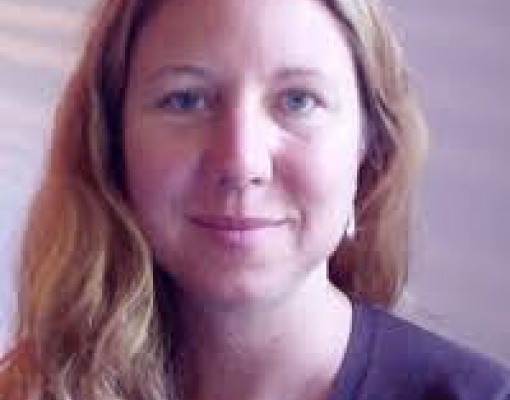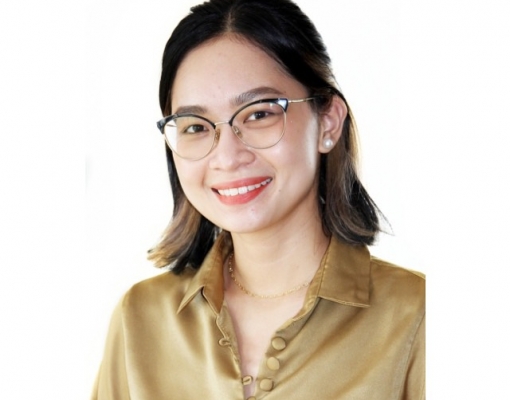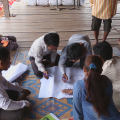Podcast – Messaging for gender equality and disability-inclusive climate policy
In this podcast episode, Dr. Kien Nguyen-Trung shares insights on how strategic messaging can advance gender equality and disability inclusion in climate policy. Drawing from a case study in Vietnam, the conversation highlights how we talk about climate change can empower people with disabilities during extreme weather events.
Reflecting diverse realities in climate messaging
In the Mekong Region, climate change doesn’t affect everyone equally. Women and people with disabilities often face greater risks during droughts and floods, not necessarily because of their biological factors, but due to social roles, caregiving responsibilities and inaccessible infrastructure. So how can climate policy reflect these diverse realities and ensure that no one is left behind?
Dr. Kien Nguyen-Trung, Gender Equality, Disability and Social Inclusion (GEDSI) and Research Lead at Water Sensitive Cities Australia (Monash Sustainable Development Institute), brings over 15 years of experience in development work across Vietnam and Australia. His work sits at the intersection of research, lived experience, and policymaking.
Kien emphasizes that how we “frame” disasters can shape the solutions we pursue.
A flood doesn’t automatically become a disaster. A disaster only happens when the affected community lacks the capacity to cope.
In communication, framing refers to how information is presented, which involves highlighting certain aspects of a message while downplaying others, essentially creating a specific "frame" or perspective. Different frames can lead to different decision-making and reactions.
Therefore, it is crucial to shift the focus from the weather-related disasters such as floods and landslides to the structural barriers that make people vulnerable. According to Kien, accurately linking vulnerability with disasters requires close collaboration with affected communities and the organizations that represent them. Real-life stories, grounded in specific incidents and authentic voices, can bring statistics to life, and ultimately drive meaningful policy change.
In Vietnam, Kien’s recent research with the Hanoi Association of People with Disabilities (DP Hanoi) challenges the assumption that hazards alone cause disaster impacts. Through thematic analysis, his team identified eight socially constructed barriers that increase vulnerability for people with disabilities during climate-related events.
One powerful example: in Nghe An province, people with hearing disabilities couldn’t access weather warnings due to limited sign language education. Unlike those in Hanoi, many in rural areas lack access to inclusive education. This story highlights systemic inequalities that deepen disaster impacts.
Effective communications for inclusive policymaking
Even the best research can miss the mark if it is not communicated in a way that policymakers can understand and can take action. Well aware of the necessity of strategic communications, Kien’s team used the EAST framework, developed by the Behavioral Insights Team, to shape their messaging:
- Easy
- Attractive
- Social
- Timely
For instance, instead of simply stating that people with disabilities are vulnerable, the study showed how failing to include them in early warning systems leads to delayed evacuations, higher health costs, and slower recovery. The team used visually rich, real-life stories told by people with disabilities. At the final dissemination workshop, policymakers heard directly from those affected. “That built authenticity and urgency,” Kien noted.
Policymakers are people, and they’re moved by real stories, real struggles and real solutions. So if we want to influence policy, we must not only speak to the head, but we must also speak to the heart.
Where it all starts: Genuine collaboration
Development efforts often face challenges. In the Vietnam case study, one of the earliest challenges was a tendency to normalize the vulnerability of people with disabilities. Some local authorities believed no major changes were needed because “the system already responds to emergencies.”
Kien stresses that genuine collaboration is key. Policymakers must be involved from the start, not just consulted at the end. “They need to feel ownership of the project,” he said.
As for partners like DP Hanoi, they co-designed research questions, shaped key messages, and co-presented findings. This shared power model helped overcome resistance and build trust. It also reflects the principle of “Nothing about us without us”, a call for full inclusion of marginalized groups in decisions that affect them.
Tune in to the full episode to hear more from Dr. Kien Nguyen-Trung on how inclusive messaging can reshape climate policy, and how to do it effectively.
===============================================
Episode host: My Le
Sound editing: My Le
Series producers: Rajesh Daniel, Variya Plungwatana
Episode advisors: Karen Delfau, Boripat Lebel
Download the transcript using the link below. Links for additional resources and reading are also included in the transcript.
Listen to this episode on available channels:
Info
This story is part of the following project
SUMERNET 4 All: Engaging with water insecurity in the Mekong Region
Topic
Country
Related people
You might be interested in
-
SUMERNET Vision Guide introducing the new phase "SUMERNET 4 All"
The new, revised "Vision Guide" for SUMERNET is now available. This vision guide presents an overview of SUMERNET - its origins and governance structure, background to the network, aims, key research areas, engagement with policy, and outreach products
![SUMERNET Vision Guide introducing the new phase "SUMERNET 4 All"]()
-
SUMERNET 4 All Call for Proposals on Joint Action
SUMERNET 4 All (S4A) provides financial support and technical assistance to consortia of researchers and boundary partners from the Mekong Region
![SUMERNET 4 All Call for Proposals on Joint Action]()
-
SUMERNET launches redesigned website to provide a fresh visual look and direction
SUMERNET is proud to announce the launch of our redesigned website to coincide with our new phase of work on addressing water insecurity in the Mekong Region.
![SUMERNET launches redesigned website to provide a fresh visual look and direction]()
 By
By 







 Read more about SUMERNET
Read more about SUMERNET
